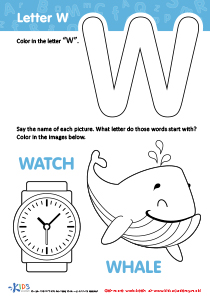Spelling practice Normal Grade 3 Phonics Worksheets
4 filtered results
-
From - To
Enhance your third grader’s spelling skills with our Phonics Worksheets designed for normal grade practice! Our engaging activities focus on essential phonics concepts, helping students build a strong foundation in spelling. Each worksheet features lively illustrations and fun exercises that reinforce letter-sound relationships, tricky words, and spelling patterns. With various levels of difficulty, these resources cater to different learning needs, making them ideal for both classroom use and home practice. Encourage your child to boost their spelling confidence and improve their literacy skills with our comprehensive collection of third-grade phonics worksheets today! Explore the world of words and let the learning begin!
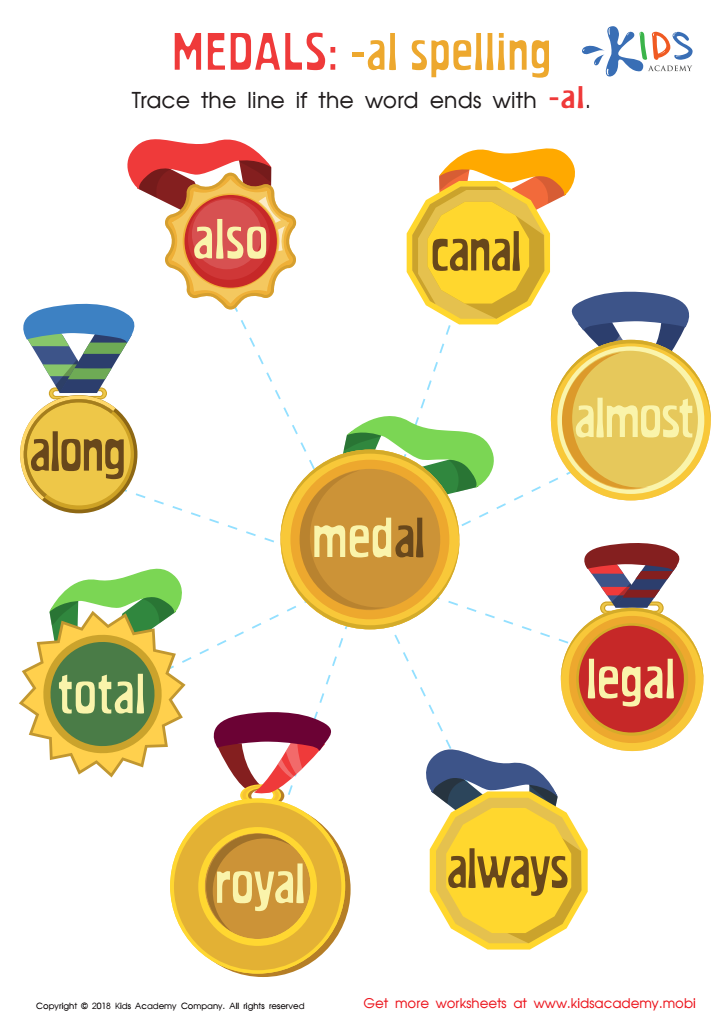

Medals: Al Spelling Worksheet
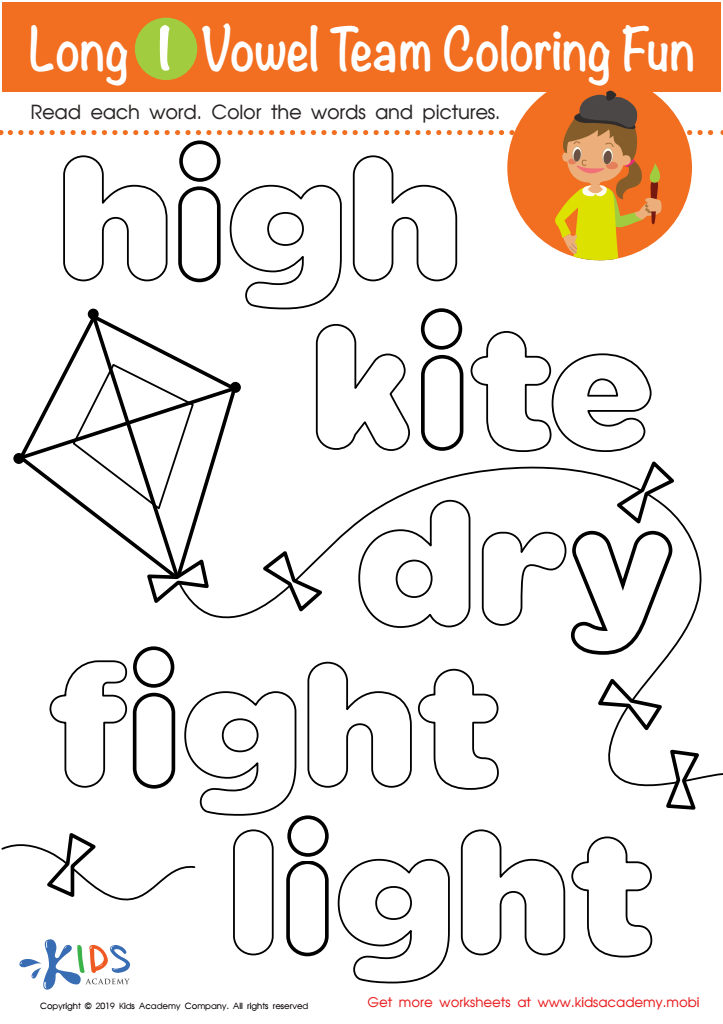

Long I Vowel Team Coloring Worksheet
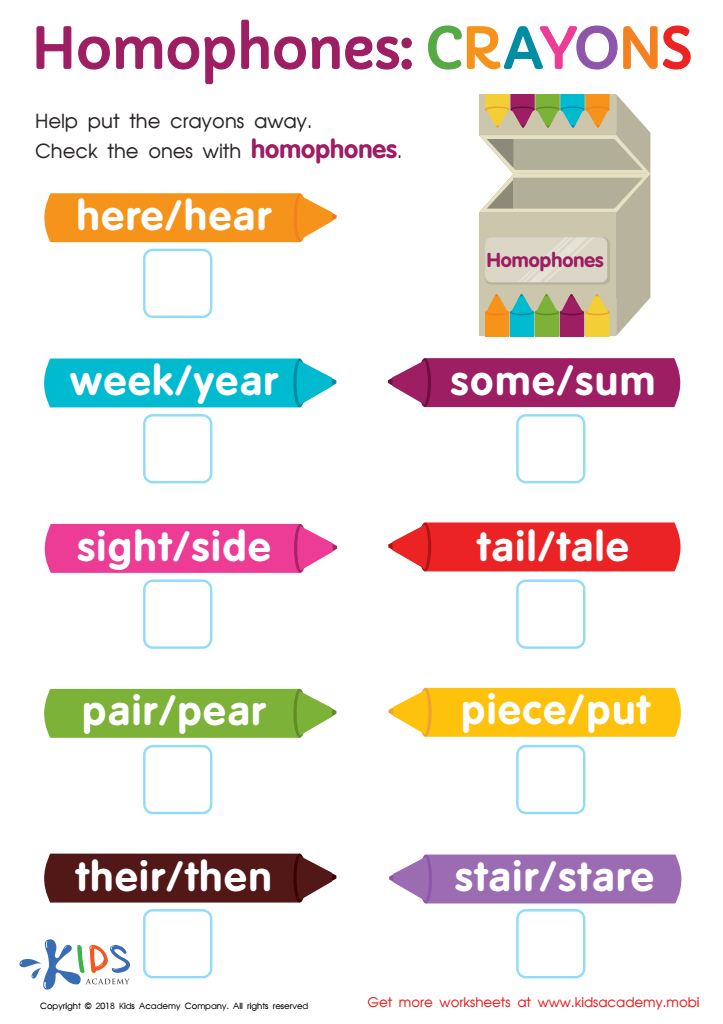

Homophones: Crayons Worksheet
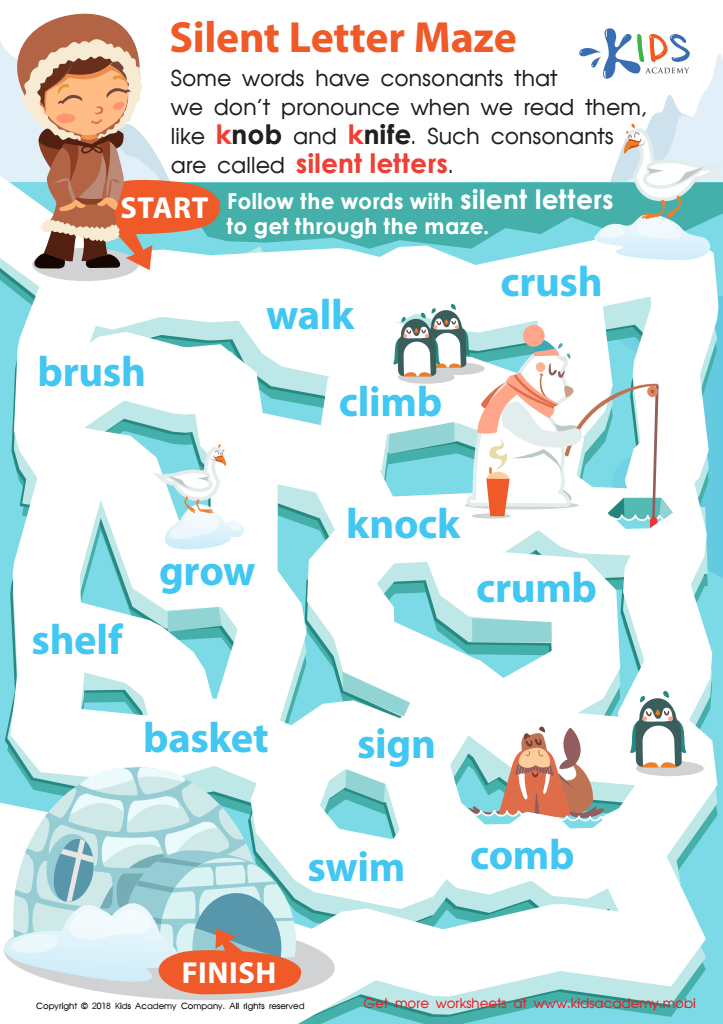

Silent Letter Maze Worksheet
Parents and teachers should prioritize spelling practice in Grade 3 phonics for several compelling reasons. First, spelling competency directly supports reading skills. As children learn to decode words, understanding the relationship between letters and sounds enhances their ability to read fluently and comprehensively. Phonics instruction, rooted in spelling practice, helps children recognize patterns and predict how unfamiliar words are pronounced.
Additionally, strong spelling skills foster confidence and improve writing abilities. When students grasp the mechanics of how words are constructed, they feel more capable in expressing their thoughts in writing. This empowerment can lead to more engaging, imaginative, and effective communication.
Furthermore, regular spelling practice encourages memory retention and cognitive development. The process of repetitively writing and pronouncing words can enhance neural connections in a child’s brain, reinforcing their learning.
Finally, mastering spelling at an early age lays a solid foundation for future academic success. As language demands increase in complexity through higher grades, early proficiency in spelling helps mitigate challenges. By investing time in Grade 3 spelling practice, parents and teachers provide essential tools for literacy that children will carry throughout their educational journeys and beyond.
 Assign to My Students
Assign to My Students




